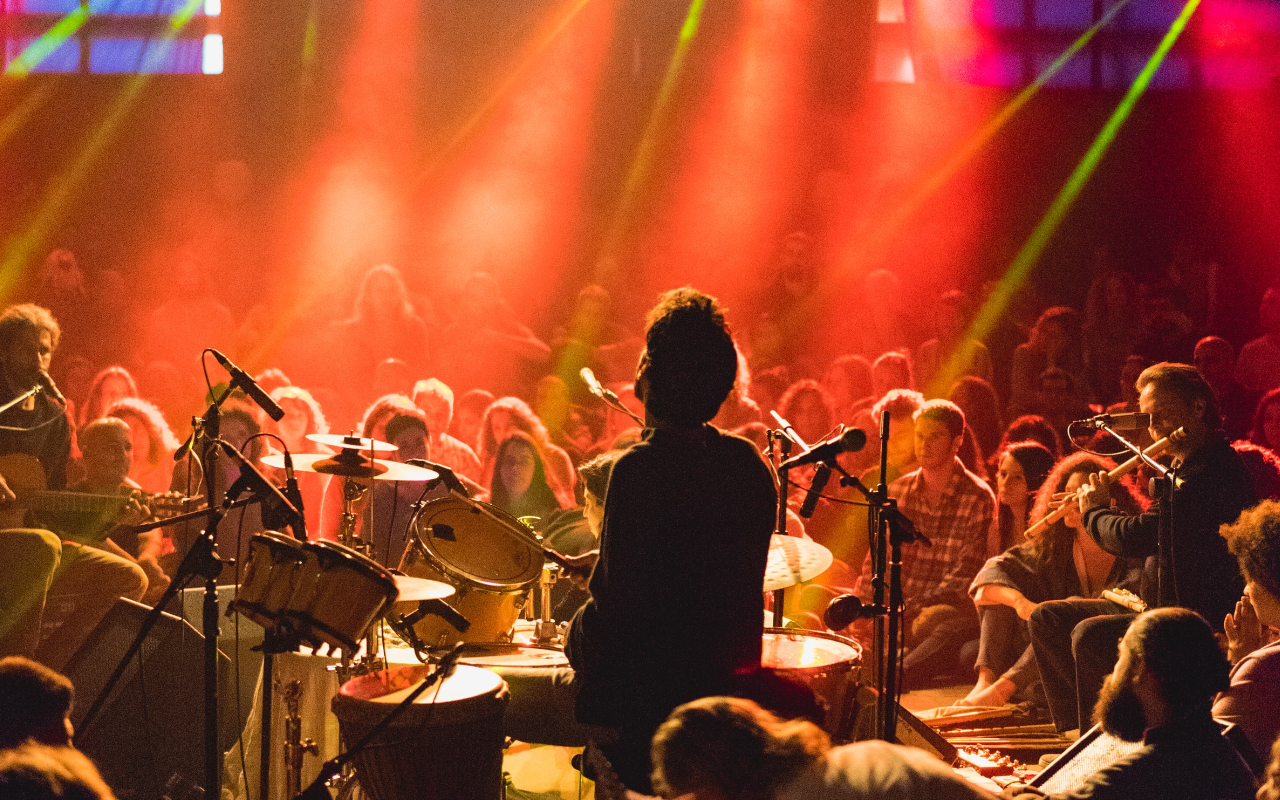
Photo: Dan Gold
Live music royalties yet to recover
While concert revenues and artists payments decline, PRS for Music records substantial growth from online royalties.
Royalties from live music events fell by almost 30% in 2021 in a year of “exceptional circumstances”, says PRS for Music.
The music industry’s staggered recovery from the pandemic resulted in a mixed bag of financial results for the collection society last year. Concert revenue was just £8m, down 85.2% on 2019 (£54m), but online royalties reached new heights, boosting PRS’ overall revenue to near pre-pandemic levels.
The company’s total revenue reached £777.1m in 2021, a 22.4% year-on-year increase and only a 4.2% drop on 2019.
READ MORE:
- PRS sets 10% interim livestream tariff against objections
- PRS backpedals on streaming licence for small events
PRS holds “renewed optimism” live revenues will bounce back, with more than 240 major tours planned by its members this year.
In some areas, the tide has already begun to turn. Public performance revenue, which combines live music events with music used in business premises, saw a 59.6% uplift last year in spite of five months of pandemic-related closures.
PRS for Music CEO Andrea Czapary Martin called the increase “encouraging”, even though performance revenue remains 38.1% below the pre-pandemic figure.
“It reflects a marketplace, like the economy, that is getting back to business.
“Significantly, it underlines the organisation’s ability to adapt to all market sectors to fully monetise and protect the value of the music rights entrusted to us.”
Online success
A 45.6% year-on-year increase in royalties collected from music played online was PRS for Music’s “highlight for the year”.
Online royalties paid out in 2021 grew to £247m, more than double what artists received in 2019 (£118.8m), and a “critical income stream for members during the pandemic,” according to the collection society.
When asked by ArtsProfessional, PRS for Music did not disclose how much revenue was made from its controversial online live concert licence, saying it will make its first distributions of royalties from the tariff later this year.
Around 400 livestream events licences have been issued since the scheme launched in February 2021.
A spokesperson said the company is “pleased with the popularity of the licence” but has no plans to consult on making it permanent.
The £267.8m collected from online music use has grown by half since 2019. Music streaming accounted for 84% of online revenue, but money generated from music featured in video-on-demand saw the largest increase, doubling to £34.5m last year (now 12.8% of online revenue).
PRS says the increase arises from new arrangements with Disney+ and Apple TV. A similar deal with TikTok now ensures artists receive royalties when their songs are use on the platform.
Processing up
Despite a 20% increase in performances, PRS paid its members less last year (£677.2m) than in 2020 (£669.4m).
27 trillion performances of music were processed in 2021, contributing to a 500% increase over the past five years.
Martin attributed the decline to delays in receiving international royalties, with the Covid-related downturn only now being reflected in payments abroad.
PRS says it is committed to “maximising and accelerating” distributions, as well as extending its membership base. 8,000 new songwriter, composer and publisher members were welcomed in 2021 and nearly 240,000 new songs and compositions were registered.
Join the Discussion
You must be logged in to post a comment.